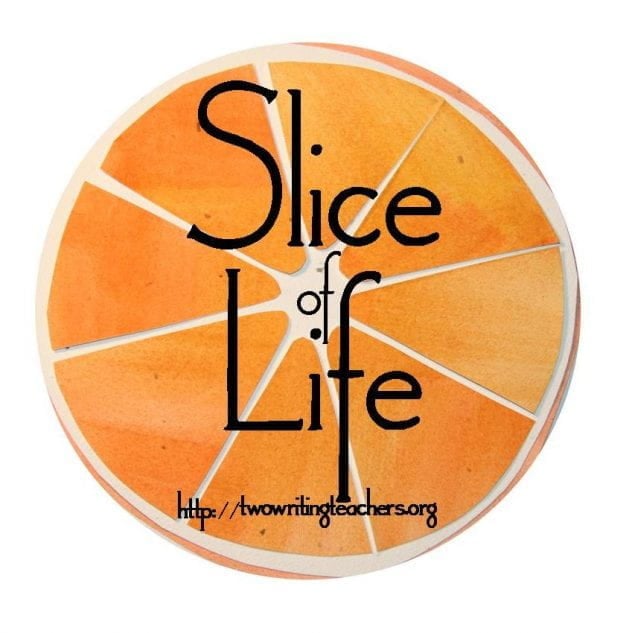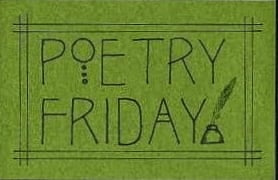
I am trying an N+7 poem, a kind of Ouvroir de Litterature Potentielle (OULIPO), or Workshop of Potential Literature, which I learned from Linda Mitchell last week. In this poem, you remove nouns (N) from a poem that has already been written. Then using a paper dictionary, you look at the seventh word (+7) from the word you removed. Thus, school becomes scoop in the first line of “Sick” by Shel Silverstein. I mostly left the nouns at the end of the lines unchanged to maintain the rhyme.
Siege
“I cannot go to scoop today,”
Said little Peggy Ann McKay.
“I have the mechanism and the mumps,
A gate, a rate and purple bumps.
My muck is wet, my thrush is dry,
I’m going blind in my right eye.
My topcoats are as big as rocks,
I’ve counted sixteen chigger pox
And there’s one more–that’s seventeen,
And don’t you think my fact looks green?
My legion is cut–my eyries are blue–
It might be instamatic fluke.
I count and snivel and gauge and choke,
I’m sure that my left legion is broke–
My hiss hurts when I move my chin,
My beach buzzer’s caving in,
My bacon is wrenched, my annual’s sprained,
My ‘pliance pains each time it rains.
My notary is cold, my toilets are numb.
I have a slope inside my thumb.
My nick is stiff, my volleyball is weak,
I hardly white-bait when I speak.
My toot is filling up my mouth,
I think my hake is falling out.
My electrician’s bent, my spiritualism ain’t straight,
My temptation is one-o-eight.
My brandy is shrunk, I cannot hear,
There is a hollyhock inside my ear.
I have a hansom, and my hearth is–what?
What’s that? What’s that you say?
You say today is. . .Saturday?
G’bye, I’m going out to play!”
Original poem “Sick” by Shel Silverstein
Another try with an Emily Dickinson poem.
“Hornet”
By Emily Dickinson
Dinner
Baked potato
Filet mignon steak
Broccoli with cheese sauce
Root beer floats for dessert
Laughter, conversation, and dogs to pet
With family and friends, heartfuls of love
Here’s another form of a snowball where each word in a line has one letter added:
I am dim, very dingy, opaque, ignored, crumbled.
I am joy, seen, blest, bright, blazing, becoming.
And this unwieldy sentence growing from one letter to 18 letters:
A so far away point etches obvious overlays, broadened explosions expatiating multifaceted entanglements intransitively, representations discombobulating characterizations disproportionately.
Today is Poetry Friday, as well as Day 11 of the March Slice of Life. Our hosts for Poetry Friday are Sylvia and Janet over at Poetry for Children. There is a delicious post there today! Thank you, Sylvia and Janet, and all the best on your delicious new anthology.

Love all the forms you’ve highlighted here, Denise! Your N+7 is especially fun – “sixteen chigger pox” could be real! I love the cumulative effect of the snowball poems. 🙂
Very creative poetry work, Denise! You have inspired me to get writing.
I have never heard of these, how fun! I typically write free verse, but these look like fun to play with. Thank you for sharing.
ThecN+7 poem is clever. I can see how it wold appeal to students given use w/children’s poetry, such as the Shel Silverstein poem. The result is a form of Jabberwocky.
Thank you for introducing me to these new poetry forms Last year I learned about golden shovel poems. I will try an N+7 poem this year — though I will have to pick a poem that won’t feel desecrated by this kind of wordplay. Shel Silverstein is a good place to start.
Denise, this type of writing is laborious and you did a marvelous job.
Fun! Now, I must try a snowball poem. I love how N+7 appeals to kids and it’s easy enough to do to not feel intimidated by a dictionary. A third teacher in my school asked for this lesson. So, I think that there must be something good in it!
What an array of poems you’ve given us today! The substituted words make the “Sick” poem even funnier! I didn’t know about snowball poems – there are so many ways to play with words and forms – thanks for sharing these with us today! I hope they were as much fun for you to write as they have been for us to read.
Thanks for sharing your playful approaches to some poetry forms, Denise! I have the N+7 set aside to try some time. What a fun starting point to build from. I have extra love for “My hiss hurts when I move my chin…”